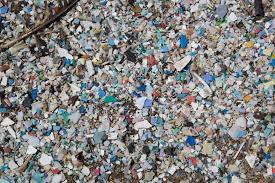Pollution Continues to Worsen Due to Irresponsible Plastic Usage

October 29, 2021
Plastic waste is a huge aspect of pollution in this era. A major contributor to this issue occurs when citizens are not mindful of the amount of their usage of one-time-use plastic products in their daily lives. Plastic grocery bags, to-go boxes/cups, and packaging are only a few examples of the wasteful items used daily.
The effect that these objects has on the environment may not seem drastic at the moment, but, according to expert Winnie Lau, if citizens continue to use these one-time-use plastics at this rate, the situation will become “an insurmountable problem.”
In a recent article in Trust Magazine, Lau writes that, each year, “roughly 11 million metric tons of plastic [flow] into our ocean.” This amount “could nearly triple by 2040 without urgent action,” she said. Surprisingly, this amount isn’t even relatively close to the amount of plastic produced yearly. “Of the 260 million tons of plastic the world produces each year, about 10% ends up in the ocean,” according to Claire Le Guern on PlasticPollution.org. In addition to this, only about 9% of the plastic produced annually actually ends up being recycled.
“Where does the rest go?” one might wonder. With 10% in the ocean, and 9% getting recycled, the remaining 81% ends up littered, in landfills, or ingested by animals. “About 34% of dead leatherback sea turtles have ingested plastics,” according to the Center for Biological Diversity.
The situation may seem irreversible at this point, but that is a misconception. Countless organizations and committees have been formed by concerned citizens and volunteers whose goal is to help spread the word about reducing plastic waste. One of these many organizations is called A Greener Future. It features numerous posts on its Twitter page that encourage people to participate in its ‘volunteer days,’ during which groups of volunteers gather to pick up trash and waste around beaches and forests.
In addition, ordinary citizens and politicians are taking to social media on their own to spread awareness. “It’s time to do something about the single-use plastic clogging our oceans. My REDUCE Act would tackle plastic pollution and boost recycling,” Rhode Island senator Sheldon Whitehouse tweeted.
So what can people do to reduce plastic waste and pollution? “First off, people have to start using less plastic, and that would go a long way toward mitigating the problem,” THS science teacher Dr. Robert Kennedy said. “The second thing is people have to make each other aware that if you’re not using less plastic, you should use less plastic, and if you’re not recycling, you should recycle.”
















































































































































